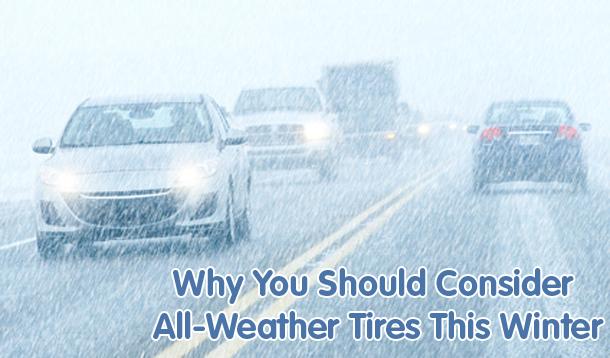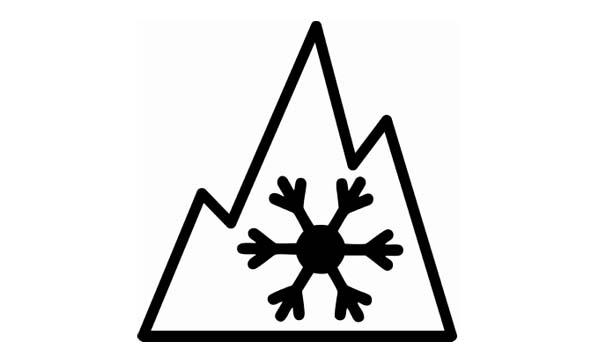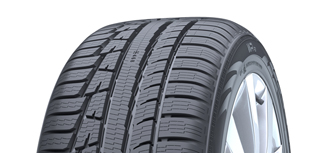
Winter is coming, that’s a certainty, so now is a great time to consider the different winter-driving tire choices available to you.
According to a recent Kal Tire survey conducted on Ontario, Alberta and British Columbia drivers, 44% of respondents indicated that they don’t plan to use winter tires this season. On the upside, 64% of respondents who aren’t using winter tires this season said they’re considering all-weather tires for their next winter tire purchase.
Research has shown that nothing is better than a dedicated set of winter tires for the Canadian winter season because they perform best in ice and snow conditions. Vehicle handling will be improved when tires of the same type, size, speed rating and load index are installed on all four wheels. If you do decide to purchase winter tires, it's important to know that every winter tire that meets Transport Canada’s specific snow traction performance requirements has a peaked mountain snowflake symbol. Without this symbol, it is not a true winter tire. This symbol also appears on all-weather tires, which also makes them a great option Canadian winter-driving conditions.

If you’re thinking about getting winter tires, but lack storage space for an extra set of tires or you don’t want the hassle of getting your tires changed twice per year, all-weather tires may be a good option for you — especially if you live in an urban area where you’re not typically driving in deep snow.
The benefit of an all-weather tire is that it can perform well throughout all four of our Canadian seasons. Not only does it provide the traction and the comfortable ride you’d expect from an all-season tire, the rubber compound is designed to remain soft through the cold winter season. This is important because it is ideal for the tire to remain flexible and respond to different road surface conditions in order to get maximum traction.
Consider this: although dedicated winter tires perform best in ice and heavy snow conditions, all-weather tires perform better in slush and wet asphalt road conditions.
A good example of an all-weather tire is the Kal Tire Nokian WR G2 and G3. In addition to being a tire that performs well on dry roads, the tire is designed to roll easily so your car will consume less fuel and therefore emit less CO2. One concern that many drivers have about all-weather tires is that the tire doesn’t last very long. The Nokian WR G2 and G3 have answered that concern by incorporating tear-resistant natural oils in the rubber compound to make the tread more durable so you’ll get good mileage compared to other all-weather tire brands.

Remember, the only thing keeping you in contact with the road is your tires. As the colder weather approaches, get your car ready for winter and stay safe this season!
